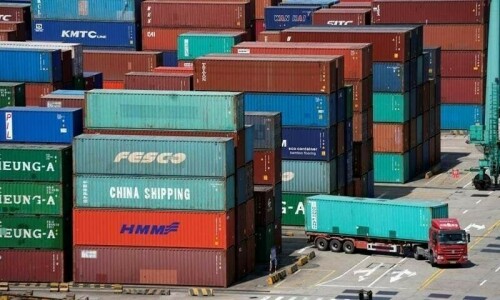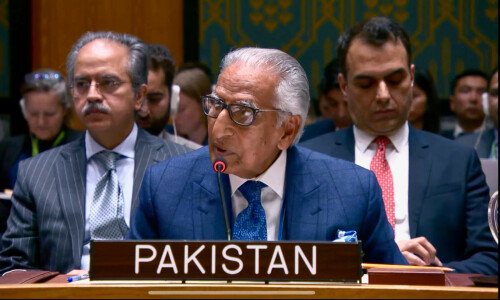ISLAMABAD: The budget slashed the subsidy bill to Rs209 billion this year, down from Rs349.5bn dispersed last year. Even last year they were unable to stay within budgeted bounds that were set at Rs271.5bn.
The government, on one hand reduced the overall subsidies, but on the other hand announced Rs30bn subsidy for the Naya Pakistan Housing Authority and Rs2bn for the Metrobus Service, Islamabad.
The government had allocated Rs271.50bn in subsidies during the fiscal year 2019-20, however, the expenditures under the head increased to Rs349.50bn. The massive increase was mainly due to Rs43.50bn allocation for the Utility Stores Corporation (USC) during Ramzan and sale of essential items at reduced rates. Another Rs10bn were allocated to the USC for the Corona Stimulus and Rs10bn were paid for electricity bill deferment following the pandemic.
Another Rs23bn were paid to oil companies as subsidy on petroleum. However, the companies were not allocated any subsidy in the upcoming fiscal year.
The government also paid Rs7bn to Engro and Fatima Fertiliser as plant subsidy whereas an additional Rs6bn have been allocated for the firms in the upcoming fiscal year.
The budget document said the government will provide subsidies mainly in power and food sectors to alleviate the impact of inflation on citizens, especially the poor segments of society.
In the previous budget, subsidies worth Rs201.00bn were allocated to the Water and Power Development Authority (Wapda)and Pakistan Electric Power Company (Pepco). Another Rs124bn have been allocated for Wapda and Pepco in the budget for next fiscal year, which includes Rs110bn for inter-disco tariff differential.
While, subsidy on electricity consumed by the agriculture tube wells in Balochistan was reduced to Rs3bn in the budget for next fiscal year from Rs8bn last year.
The electricity subsidy for AJK was also reduced to Rs1bn.
In the last fiscal year, the government paid subsides amounting to Rs59.5bn to the K-Electric, but reduced the same to Rs25.50bn for the next fiscal year.
The estimated subsidy for the USC has also been reduced to Rs3bn, most of it allocated for the Ramzan package.
The wheat subsidies for Gilgit Baltistan were reduced to Rs6bn , while Rs7bn were allocated to maintain wheat reserve stock and wheat operations by the Pakistan Agriculture Storage and Services Corporation.
Published in Dawn, June 13th, 2020

















































